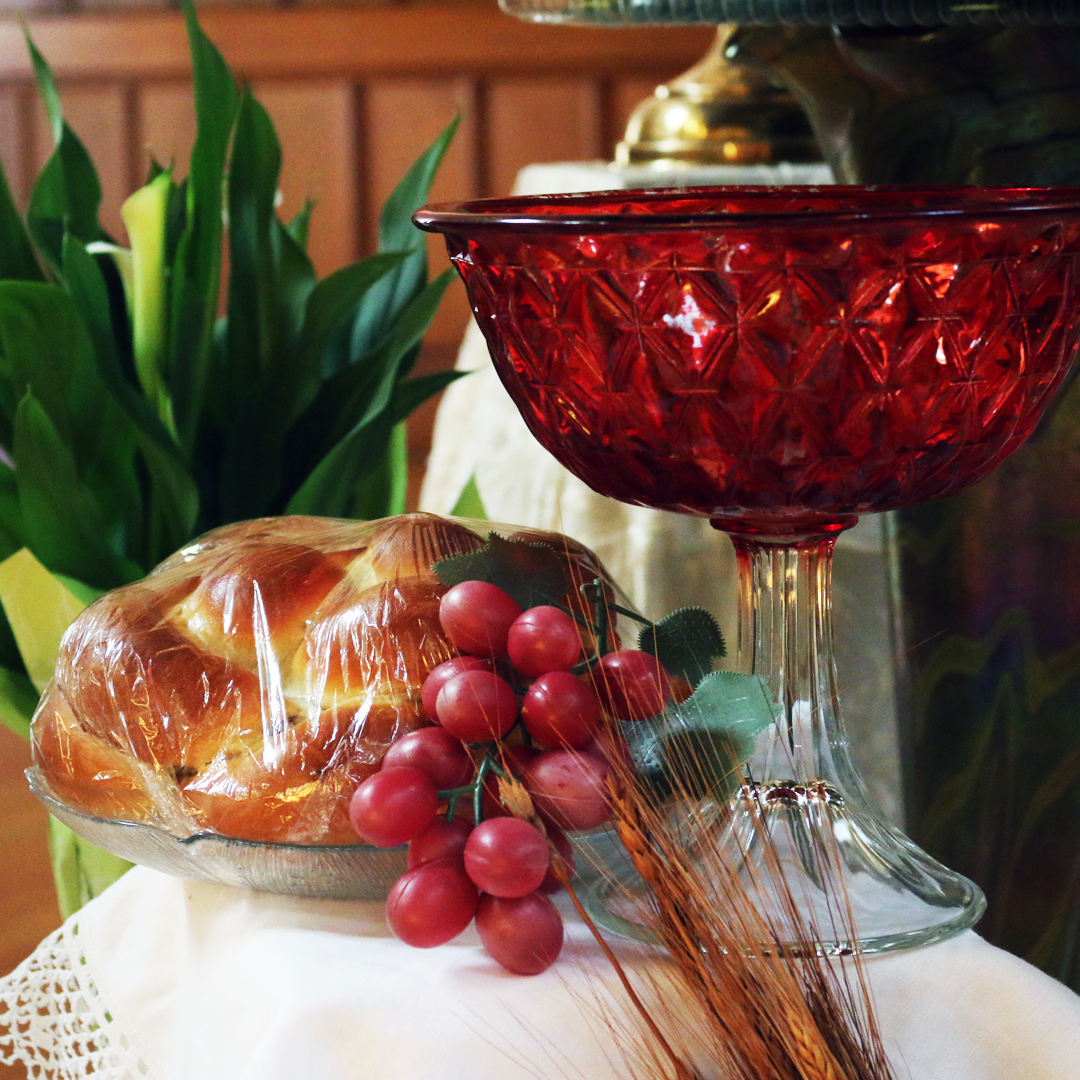Eight Ways We Go Astray


Not just a danger at the holidays or the local “all-you-can-eat” buffet. For Evagrius, gluttony actually leads us to be overly concerned about our physical wellbeing. It tempts us to drastically reduce or completely give up fasting and other ascetical practices for fear of adversely affecting, or even ruining, our health. Gluttony also makes us short-sighted and prevents us from seeing God and truth clearly. If we find ourselves taking more food than we need to feel satisfied, thinking a lot about food outside of mealtime, or are overly choosy at mealtime, we are likely under the influence of gluttony.

Remedy: We need to get to know and learn to be satisfied with what our bodies actually need (and that’s a lot less than we think). While there are times to celebrate and have a feast, we will enjoy the feasts more if we learn to get by the rest of the time with simpler, and substantially less, food and drink.

The opposite of love, lust is “seeking bodies.” This is not just about sex – it’s about using people to make ourselves feel good. Lust blinds our mind’s eye and keeps us from seeing God and truth. When we try to pray while under the spell of lust, we can’t and then acedia follows.

Remedy: Gluttony and lust often go hand-in-hand. When our bodies have plenty of food and drink, we begin to look to satisfy other needs and desires. To help prevent lust, fast regularly and exercise or engage in manual labor. Other tips: control the imagination and guard what you feed it (what you see and hear).

Avarice afflicts a person with fear of insecurity, of a lengthy old age and the inability to work, so instead of trusting in God’s providence for the tomorrows of our life, we start collecting and hoarding more than we should for a “rainy day.”

Remedy: We need to increase our faith that God will provide for our actual needs of tomorrow (not necessarily our wants or desires). Give generously to others, even from your need. God will not be outdone in giving.

The thought of sadness comes upon us when we don’t have what we want. Certain thoughts bring up memories of past “good times”, perhaps thoughts of childhood or school days. If we don’t resist this walk down memory lane, we pour ourselves into past pleasures, only to “wake up” and realize it’s gone and life is no longer as it once was. Our souls are left in sadness to the degree we pursued our memories.

Remedy: Flee attachment to earthly pleasures. Because all things in our earthly life are passing, attachment to them only becomes a trap for us and keeps us from God in this present moment.

Sometimes sadness brings a friend, anger. Anger also tends to follow pride. It is the fiercest passion and constantly irritates the soul over wrongs inflicted upon it, either real or imagined. In our quiet, prayerful moments, it flashes up the memory of the offending person or event and keeps us boiling. If it is allowed to persist, it becomes indignation, disturbs our sleep, causes physical illness and gives us illusions of continued attacks – we begin to see all actions as threats against us.

Remedy: Practice almsgiving and meekness. Images of a frightful kind come from anger, which disturb our sleep and makes us weak the next day, so don’t let the sun go down on your wrath: forgive.

Acedia is what the Desert Fathers called “the noonday demon.” It causes the most serious trouble of all because it hits us in the middle of our prayers and good works and makes us restless. We become bored with spiritual things – with Mass, with prayer, with spiritual reading. We check our watches for the fiftieth time, yawn and look out the window for a distraction, any distraction. Acedia tempts us to give up what we are doing and move to more exciting, greener pastures.

Remedy: Give yourself a motivating pep talk: “why so downcast, o my soul? Why groan within me? Hope in God, I will praise Him still, my savior and my God!” Stand firm, be patient, and be brave. The good news is that if we persevere in resisting acedia, no other evil thoughts immediately follow – only deep peace and joy.

Vainglory is subtle and can grow in even the most virtuous souls. It leads a person to desire praise from men for their good deeds, to make their works known publicly and causes all kinds of daydreams and fantasies. As vainglory finishes its work, pride or sadness often swoop in. Or, we come crashing down by falling into a baser temptation, such as lust.

Remedy: Because it poisons even good works, vainglory is extremely difficult to detect and overcome. However, vainglory can be driven away by nearly all the other Eight. This is because most of us won’t take pride in falling into one of the other Eight. However, be on guard: once the other Eight are defeated, vainglory will come back to tell us how well we did and tempt us to publicize our good work!

Pride causes the most damaging fall of all because it is a direct offense against God. It causes us to deny God as our helper, our firm support, and to claim any gifts or excellence we have as our own. A person who is under the sway of pride gets “a big head”, with an attitude that their way is the best way, and that those who disagree with them are foolish for not agreeing with him or her. Because we are not God and people will disagree with us, anger and sadness inevitably follow pride.

Remedy: To fight against pride, we should frequently remind ourselves of these four things: 1) our former life and past sins; 2) even though we were slaves of sin and our passions, Jesus, in His mercy, delivered us to a state of grace; 3) as Christians, we are to separate ourselves from the things of this world, which so often and in so many ways bring us low; and 4) it is Jesus who preserves us, saves us from these pitfalls and delivers us from the demons that would rage against us.
From the earliest days of Christianity, men and women have gone out into the desert, seeking God and to “bear fruit worthy of repentance.” These Desert Fathers and Mothers are at the foundations of monastic life, and their wisdom and teachings were passed down from one monk and nun to the next. But one man systematized them into some very practical advice for those seeking God. Evagrius described for us “Eight Evil Thoughts” and stated that all our thoughts can be classified into one of these eight. And these thoughts, if left unchecked, keep us from true prayer, lead us away from God and take us down paths were we “do what we don’t want to do and don’t do what we want.” Evagrius and the Desert Fathers knew that the first step to real transformation is to know ourselves – our own thoughts and desires – and only then can we avoid the insanity of doing the same thing again and again, yet expecting different results.
These Eight Thoughts were picked up, further developed and refined by John Cassian, Saint Gregory the Great, Saint Thomas Aquinas and others to become the Capital (or Deadly) Sins many of us are familiar with today. So here’s a quick rundown of the Evagrius’ “Eight” and how to fight them.
Finally, some general remedies:
Suffer from a wandering mind? Regain focus by reading Scripture and spiritual books, spending time at night or in the early morning in silent waiting on God, and pray.
Ablaze with “flames of desire”? Quench earthly desires with fasting, regular manual labor (and/or exercise), and solitude.
Afflicted with irascibility (anger)? Calm the beast within by singing psalms (for example, the Divine Office), practicing patience, and almsgiving or works of mercy.
Of course, we can’t fight any of these without God’s help and grace, so we should always ask Him for it!
